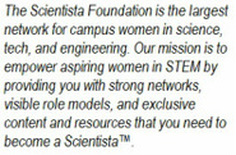|
By Julie F. Charbonnier
My first year of graduate school is a hazy memory. I can still see myself in my roach-infested apartment, piles of articles on the floor, as I paced back and forth, sipping on my fifth cup of coffee and panicking about how little I knew about…just about everything. The research project I had proposed had been destroyed during a lab meeting, and my students despised my lecturing style. If this isn’t going to be on the quiz, why do we need to learn it? I couldn’t even get the software I needed to load on my computer. At the time, I was sure that I was failing miserably at graduate school, and I wasn’t exactly enjoying the graduate experience.
Looking back, I now know that this transitional period was difficult but thrilling, and the best way for me to have gotten through it would have been to just sit back, relax, and accept the process. Maybe you can relate, and if you’re in your first year, allow me to share a few things that I would tell my younger self over a cup of decaf tea. 1. Broaden your career options to include both academic and non-academic career paths. In my early twenties, I thought the only way to be successful in science was to obtain a doctorate, become a post-doc, and then secure a tenure track faculty position at a university. However, this seemed like an almost unreachable goal, since fewer than eight percent of PhDs in Biology become tenure track faculty. I was fortunate to attend the Broadening Experiences in Scientific Training NIH program, where I learned that graduate work in the sciences can lead to fulfilling careers in industry, government, and technical writing. I wish I had been more aware of the different career opportunities early on, so that I was less stressed about my future in science. 2. Do not measure yourself only by your scientific achievements. Winning awards and getting published is important, but it is important not to let it define your self-worth. As a young scientist, I was particularly susceptible to measuring my success using external accomplishments. Scientific research is inherently unpredictable, and you are bound to have projects that fail at some point. If you only define your self-worth when things go according to plan, you become vulnerable to the ups and downs of research. Keep a record of things you have learned from each project, value your own learning, and you’ll begin to develop a measure of success that focuses on your skills and strengths. 3. Keep in touch with family and old, close friends. When I first began graduate school, my to-do list exploded. I was trying to manage my courses, research, and teaching, while also trying to foster new friendships and move into my new apartment in a new city. I fell out of touch with some of my closest friends and called my family less frequently, but family and friends are an important support network that can provide perspective when graduate studies are difficult—keep them close. This outside support network can be especially useful in the competitive graduate environment, to keep you motivated and grounded. 4. “Enjoy Yourself (It’s Later Than You Think)” I first heard this 1950’s song in my junior year of college, and I play it sometimes to keep things in perspective. Graduate school will likely be a difficult, challenging, and hectic time in your life where you can lose yourself to the science. However, don’t stop doing things that you enjoy outside of science. When I began graduate school, I stopped writing poetry and fiction. Some of the most successful graduate students I have met engage in passions outside of science, like sports, music, and art. You will undoubtedly have less time than you did as an undergraduate, but nurturing those hobbies that make you who you are is important for maintaining a positive perspective and propelling you through challenging times. Remember, you are a novice—embrace it. This is what I miss most about my early graduate school years: my lack of experience. It’s nice to have learned a few things along the way, but the beginning of a scientific career is a challenging and exciting time. You have a new perspective to bring to science, academia, and colleagues in your field. Don’t be afraid of not knowing the answer or of being unfamiliar with certain aspects of the scientific process, and enjoy your role as a newcomer because the beginning of the ride can be the most thrilling. 
About the Author
Julie F. Charbonnier is a 4th-year PhD candidate in Integrative Life Sciences at Virginia Commonwealth University. Her research focuses on amphibian and population ecology. She is also interested in scientific writing and science policy. You can follow Julie on Twitter @modernecologist Comments? Leave them below!
0 Comments
Your comment will be posted after it is approved.
Leave a Reply. |
Education BlogAbout ScientistaSubscribe!NEW!New PostsWhat's HotClick to set custom HTML
You Might Like...
Connect With UsLatest tweets |
The Scientista Foundation, Inc. All Rights Reserved © 2011-2021 | Based in NY | contact@scientistafoundation.org
The Network for Pre-Professional Women in Science and Engineering
The Scientista Foundation is a registered 501(c)(3) -- Donate!
The Network for Pre-Professional Women in Science and Engineering
The Scientista Foundation is a registered 501(c)(3) -- Donate!


 RSS Feed
RSS Feed









